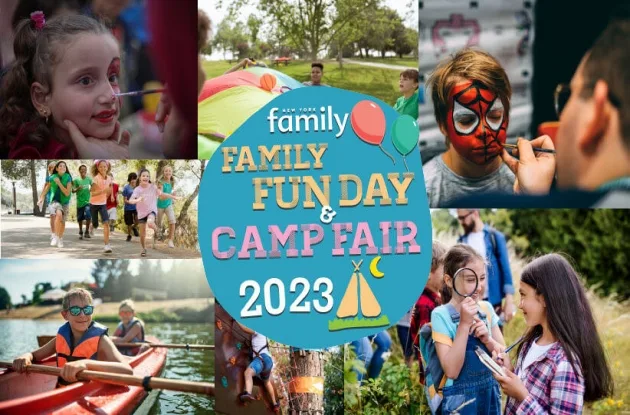Despite the chill in the air, the time has come to consider where your children will be spending the warmer days of summer. Finding the right summer camp is not easy, but knowing that your youngster is safe and happy is worth the effort. Program costs, location and schedule, as well as your child’s age and personality, are factors to be considered. Here are some tips to help you narrow your options: There is a wide array of camps, varying from day camps to sleepaway, short-term to full summer, co-ed or single sex. Some are competitive; others non-competitive. Some camps are private; others are sponsored by agencies such as Scouts, YMCAs or Boys and Girls Clubs, or by religious institutions. Many nursery schools and day care centers have programs for the summer, too. Health clubs and recreational facilities have sports-oriented summer programs. Recreation departments in various towns have summer activities, and nature preserves offer camp programs geared toward nature study. Day camps may be part day, full day (usually 9am-3pm), or extended, with early drop-off and/or late pick-up for the convenience of working parents. Most traditional camps offer an eight-week program, with two-week incremental sign-ups, and some have an optional ninth week. Some programs, such as a sports-oriented intensive clinic, can be as short as one week. Most camps are structured by age, although some also separate groups by gender. There are three basic types of camp programs. General camps provide a wide variety of activities and offer a balance between supervised group activities and independent play times. Specialty camps focus on a particular activity for those children with a talent or interest in a specific field, i.e., music and drama, science and nature study, computers, gymnastics, waterfront activities. Clinics, often run by health clubs, concentrate on one advertised activity, usually a sport, i.e., soccer, baseball, swimming. The format most appropriate for your family often depends not only upon your child’s interests, but on her age, independence, and ability to deal with new situations as well. Bearing this in mind, it is best to involve your child in the selection process as much as possible. Talk about camp with her and look on it as an adventure. Her input will help determine your choice.
Checking out a camp Camps have personalities much like your children, and it is best to find one as much in tune with your son or daughter as possible. Talk with the camp directors about the camp’s philosophy and programs, and ask what the director’s experience is with children, and who are the staff that will be taking care of your child for the summer. Some questions you might ask include: ? How many campers will be in your child’s group? What is the ratio of counselors to campers? (There should be small groups so that the staff can offer individual attention. With children under 6, a desirable ratio is 1 to 5. Over age 6, the ratio can be 1 to 10). ? Are there specialists in the various activity areas, i.e., arts & crafts, music, sports, water sports? ? What qualities do you look for when hiring staff? How old are the counselors and what kind of training do they receive? (Although First Aid training for counselors is a good idea, a nurse should be present at all times and a doctor on call for emergencies). ? What is your policy regarding emergency procedures and medical treatment? ? What is the camp’s policy regarding health and accident insurance? (Most camps carry liability insurance, but there is usually an extra fee for accident insurance). ? What provisions do you make for rainy days? ? What special activities or theme days do you offer? Are there any field trips? Visiting the campsite is a good idea. Many camps hold open house days during the spring. Take time to examine the facilities and equipment, making sure they are safe and in good repair. There should be room for sports, games and other activities, as well as a place for quiet time. The playground should have a base of wood chips, sand or other material to cushion falls. Pools should have their depths clearly marked and come equipped with lifesaving equipment. Overall, look for a safe and healthy environment that your child might find appealing. Working parents may want to inquire about special timesaving features. For example, some camps offer meals for an additional fee and “express drop off”, whereby a counselor greets your car upon arrival and signs in your child. Speak with children who have attended the camp. If it will bring you peace of mind, don’t hesitate to ask for references from parents who have had children at the camp the previous season.
Fees and expenses Costs vary depending on factors such as the length of time involved, the child’s age, if transportation is included, and special activities offered. Just because a camp is expensive does not mean it is the best or most appropriate for your child. Inquire about the details of the camp’s tuition. Most camps require a deposit with signup and the balance before camp starts. Some offer a refund policy only in cases of illness or emergency. Some camps do not operate on rainy days because of the lack of sheltered areas. The camp may determine its fees on a sliding scale based on financial ability, or provide scholarships. Often camps discount tuition for the second or third child. Most camps will honor diet restrictions. Resources • The American Camping Association (ACA) offers referrals to camps all over the United States, and publishes an annual directory of accredited day and residential camps. Most libraries have the ACA directory and may also have brochures of local programs. (212) 268-7822. • The Child Care Council of Westchester has compiled a list of 312 camps, 224 registered/licensed summer childcare programs, and 419 summer family childcare programs located within Westchester County, available free of charge to families. (914) 761-3456, ext. 140.
LOTTIE HARRIS is executive director of the Child Care Council of Westchester, Inc., a private, nonprofit agency that offers coordinated services to all segments of the childcare community including child care providers, parents, companies/ corporations, government entities, community-based organizations and the general public.



















